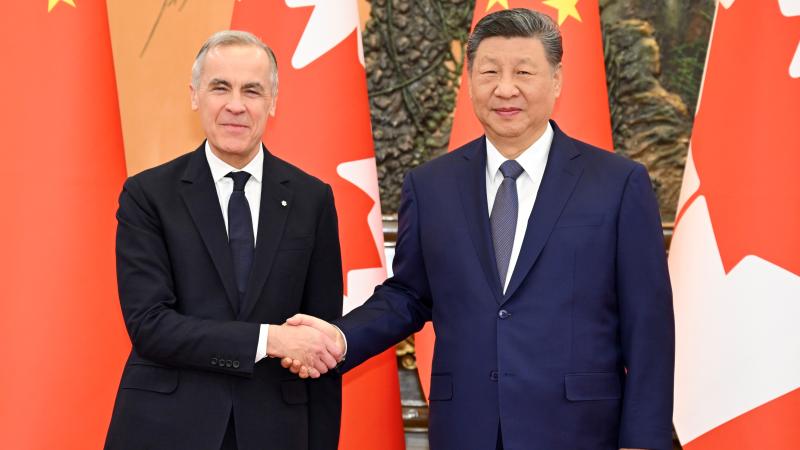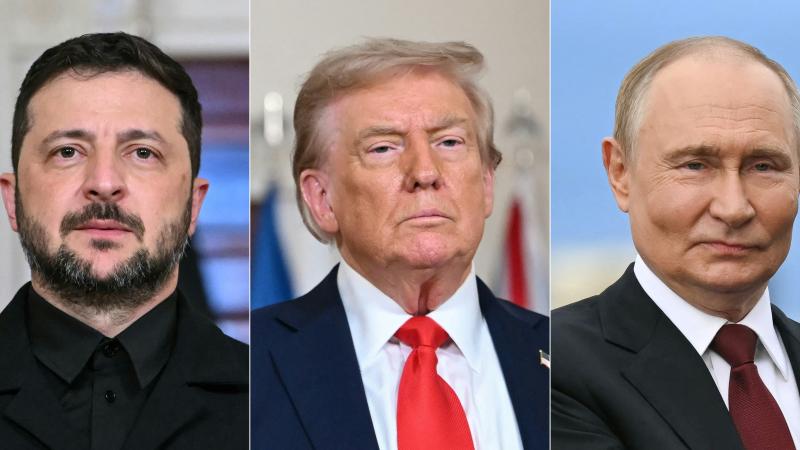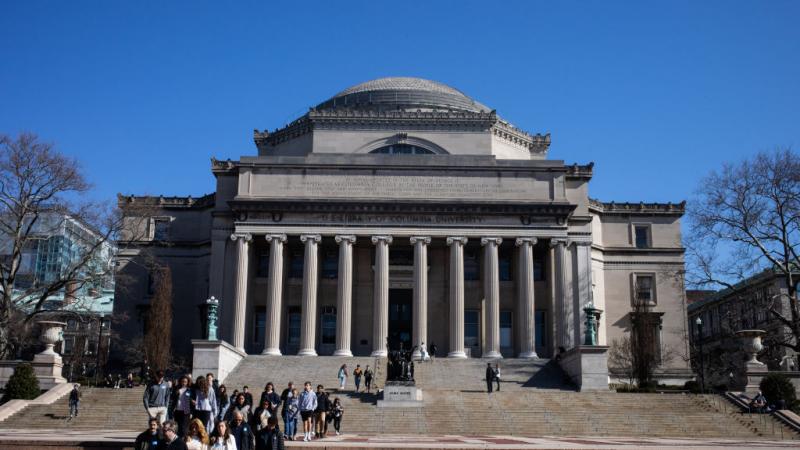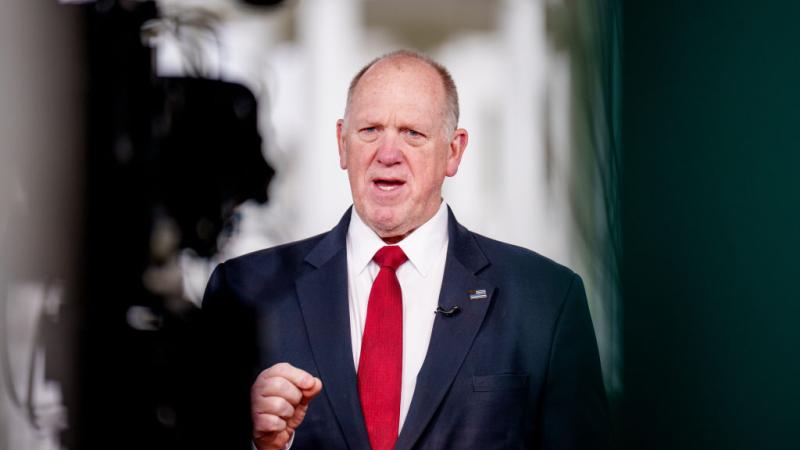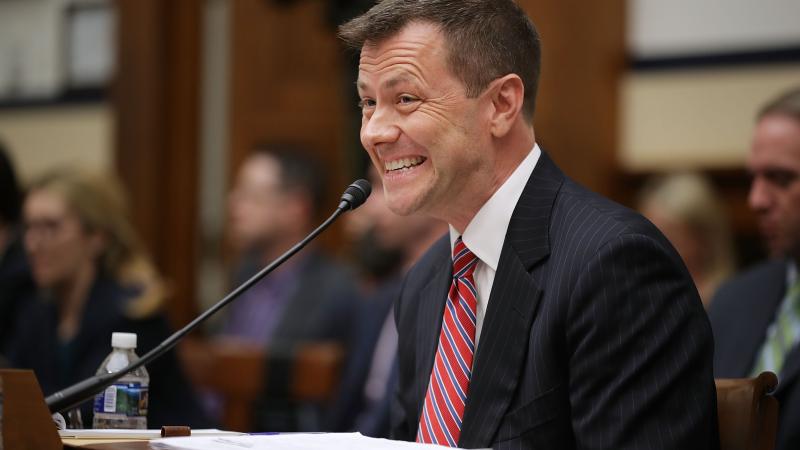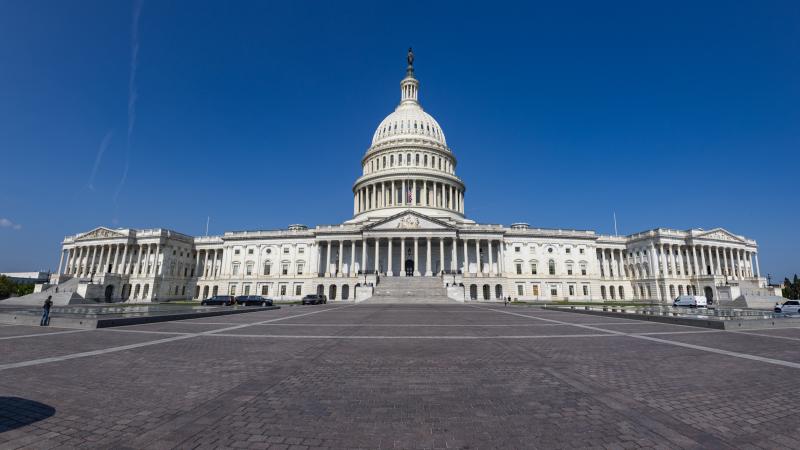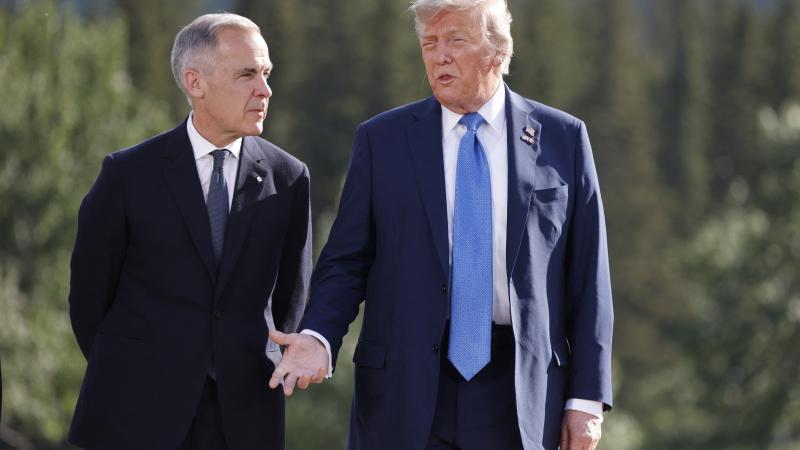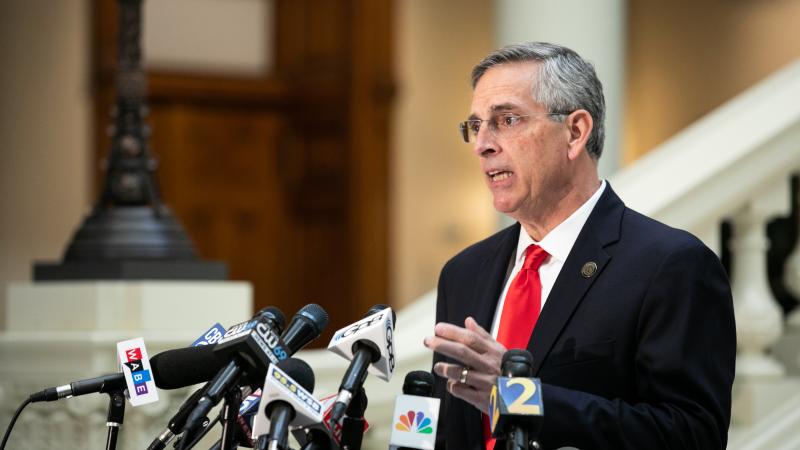Delisting Chinese stocks from American exchanges could ‘level the playing field’, experts say
Many Chinese firms have failed to fully comply with negotiated agreements and to abide by U.S. securities laws. Still, they continue to reap the benefits of the American financial markets. That may change, if Trump has his way.
As President Trump’s trade negotiations with China escalate into a full-blown trade war, the United States possesses a narrow but powerful tool to exact pressure on the Communist regime by targeting the capital-raising efforts of some of its largest corporations.
Since 2013, Chinese firms have been able to access the most prestigious stock markets in the world in New York while being able to flout auditing and transparency requirements that are imposed on every other listed company. By rescinding broad agreements that permit this, President Trump could deal a major blow to big Chinese players in tech and online commerce — industries at the forefront of U.S.-China competition — such as Alibaba, JD.com, Tencent, and XPeng.
Obama's SEC gives China a free pass
The first memorandum of understanding between U.S. securities regulators and the Chinese Ministry of Finance and the China Securities Regulatory Commission was signed in 2013 under the Obama Administration and granted significant concessions to Chinese companies that wanted to maintain access to American financial markets.
Under the deal, China agreed to allow the Public Company Accounting Oversight Board — which answers to the Securities and Exchange Commission — to gain “timely access” to certain audit documents of its homeland companies, but the Obama administration did not allow on-site auditing firms to conduct inspections. That auditing requirement was nonetheless imposed on American corporations. Under the Sarbanes-Oxley Act, the board oversees the accounting firms that audit public companies to ensure transparency and protect investors.
That agreement was renegotiated in 2022, appearing to provide U.S. regulators increased access to China-based auditing firms. Yet, the new transparency brought with it concerns that audits of those companies were deficient compared to American ones. At the same time, Chinese authorities ramped up pressure on U.S.-owned accounting firms based in China through new national security laws and other legal pressure.
The Securities Act of 1933, which is the seminal law reaching for transparency in the marketplace, has two basic objectives: requiring that investors receive financial and other significant information concerning securities being offered for public sale; and prohibiting deceit, misrepresentations, and other fraud in the sale of securities.
The 2013 Memorandum of Understanding
“[That] 2013 memorandum was unjustified,” Gordon Chang, a lawyer and China commentator who lived and worked in Shanghai and Hong Kong for decades, told Just the News. “In other words, giving China access to our markets under terms which are more favorable than companies from any other country.”
Chang continued, “Basically, they didn't have to comply with disclosure rules to the same extent as everybody else, and disclosure is the key to America's regulation of companies that have gone public.”
Chang added that the special agreement would be “an important lever” in negotiations with the Chinese, possibly forcing the China-based companies to delist from the exchanges “because they could not comply” with U.S. financial disclosure and transparency requirements.
As early as the 1990s, Chinese companies were allowed to trade on the U.S. exchanges. Losses by American investors from 2010 to 2012, during an era of risky mergers and startups, spurred U.S. financial regulators to crack down on the opacity of Chinese firms. In December 2012, the SEC took action against four major accounting firms in China that had refused to provide auditing documents the agency requested. The accountants claimed that turning over the data would violate Chinese privacy laws.
In December 2020, then-President Donald Trump signed the Holding Foreign Companies Accountable Act (HFCA) into law, after the bill was unanimously passed by the Senate and the House of Representatives. The Act requires the SEC to prohibit the trading of securities of a Chinese or non-U.S. company on U.S. stock exchanges or the over-the-counter market if the Public Company Accounting Oversight Board determines that it has been unable to inspect a company’s accounting firm for three consecutive years because of a position taken by an authority in the company’s home country.
The HFCA Act also requires such companies to make certain disclosures about their ownership by governmental entities and their relationships with the ruling political party in China. The Public Company Accounting Oversight Board proceeded to negotiate the 2013 memorandum of understanding with the Chinese securities regulators. Under the deal, China agreed that the board would receive “timely access” to audit documents of China-based companies to comply with U.S. regulations, but did not give consent to on-site inspections of the audit firms that review those companies.
China fails to comply
China has widely failed to uphold its end of the bargain. After signing the deal, in subsequent years the PCAOB warned that China was not complying, leaving the Board with no way to review the audits of Chinese companies that accounted for trillions of dollars in American investments.
“We remain concerned about our lack of access in China,” PCAOB said in a statement that has since been removed from its website. "Unfortunately, since signing the MOU in 2013, Chinese cooperation has not been sufficient for the PCAOB to obtain timely access to relevant documents and testimony necessary to carry out our mission consistent with the core principles identified above, nor have consultations undertaken through the MOU resulted in improvements.”
Ultimately, some investors say a threat by the Trump administration to delist Chinese stocks may be the only way to ultimately stop China from manipulating U.S. markets in the long-term and as a result, would level the economic playing field.
“It’s how China operates,” Kevin O’Leary, a Canadian businessman and investor, told Fox Business last week. “I want to solve the big kahuna problems, not just tariffs on China. It’s time to level the playing field.”
“I’ve been saying the same thing for weeks now, IP theft, access to their markets, delist their companies that don’t comply with the rules I have to comply with that cost me millions of dollars,” O’Leary said. “They don’t have to. Why do they get to do that?”
Though several publicly traded Chinese companies voluntarily removed themselves from the American exchanges, another 200 Chinese companies faced the risk of being forcibly delisted. Within the two-year timeframe after the HFCA was passed, the PCAOB successfully negotiated a new agreement with Chinese authorities that provided long-sought access to China-based auditors.
When the board conducted its first review of China-based auditors, including the local affiliates of accounting giants KPMG and PricewaterhouseCoopers, it discovered “unacceptable” deficiencies in the audits, the PCAOB said in early 2023.
“The fact that we found so many deficiencies is really a sign that the inspection process worked and now we can go about the work of holding firms accountable and driving audit quality and that’s what we’re going to do,” board chair Erica Williams said in May 2023, according to The Wall Street Journal.
Chinese put pressure on U.S. auditing and consultancy firms
After these discoveries, Chinese authorities began pressuring American firms vital to the auditing process, prompting the House Oversight Committee to probe whether China’s compliance with its agreement is “meaningful rather than opportunistic.”
In 2023, Chinese authorities targeted the Beijing office of the U.S.-based Mintz Group, a corporate investigations firm, and shut down its operations in the city. Chinese authorities detained all five of its Chinese employees, the company told The New York Times. The firm said in a statement that the company has not been able to contact the employees since they were taken away.
The authorities in China also questioned employees of Bain & Company, a management consulting firm. According to Forbes magazine, Republican Party presidential nominee Mitt Romney worked at Bain & Company from 1977 to 1985, and at the time of his candidacy in 2012 had no relationship to the firm.
“These targeted pressure campaigns on due diligence firms raise concerns that the CCP will continue to intimidate and not allow auditors to conduct their audits of PRC-based firms with meaningful independence,” House Oversight Committee Chairman James Comer wrote to the PCAOB chairwoman last March.
The Oversight Committee did not respond to a request for comment about the status of the probe.
CCP keeping stock markets opaque
Comer also highlighted new national security laws passed by the Chinese Communist Party that pushed at least one Chinese financial data provider to restrict access to key data points for overseas clients that help investors make informed investment decisions.
“Encroachment on the independence of American due diligence firms by the CCP, restrictions on information, and historic resistance to PCAOB oversight raises broad concerns about the future of meaningful regulatory engagement with the PRC…” Comer wrote.
A decision to ban Chinese companies from publicly trading stocks in American markets could generate significant leverage in the trade war because it would hurt some of China’s largest, and most successful, private enterprises—some critical to the coming battle over technological dominance. The daily trade volumes in American markets for many of these companies outweigh their volumes on the Hong Kong stock exchange, a safe haven from American scrutiny.
“I think everything’s on the table,” Treasury Secretary Scott Bessent said on Fox Business earlier this month when asked if the administration would consider banning Chinese stocks from trading on U.S. exchanges. “That’ll be President Trump’s decision.”
The Facts Inside Our Reporter's Notebook
Links
- granted significant concessions
- Public Company Accounting Oversight Board
- the board oversees the accounting firms
- ramped up pressure on U.S.-owned accounting firms
- The Securities Act of 1933
- took action against four major accounting firms
- Holding Foreign Companies Accountable Act
- negotiate the 2013 memorandum of understanding
- said in a statement that has since been removed from its website
- Holding Foreign Companies Accountable Act
- told Fox Business last week
- provided the long-sought access
- board chair Erica Williams said
- targeted the Beijing office
- questioned employees of Bain & Company
- wrote to the PCAOB chairwoman last March
- Forbes
- could generate significant leverage
